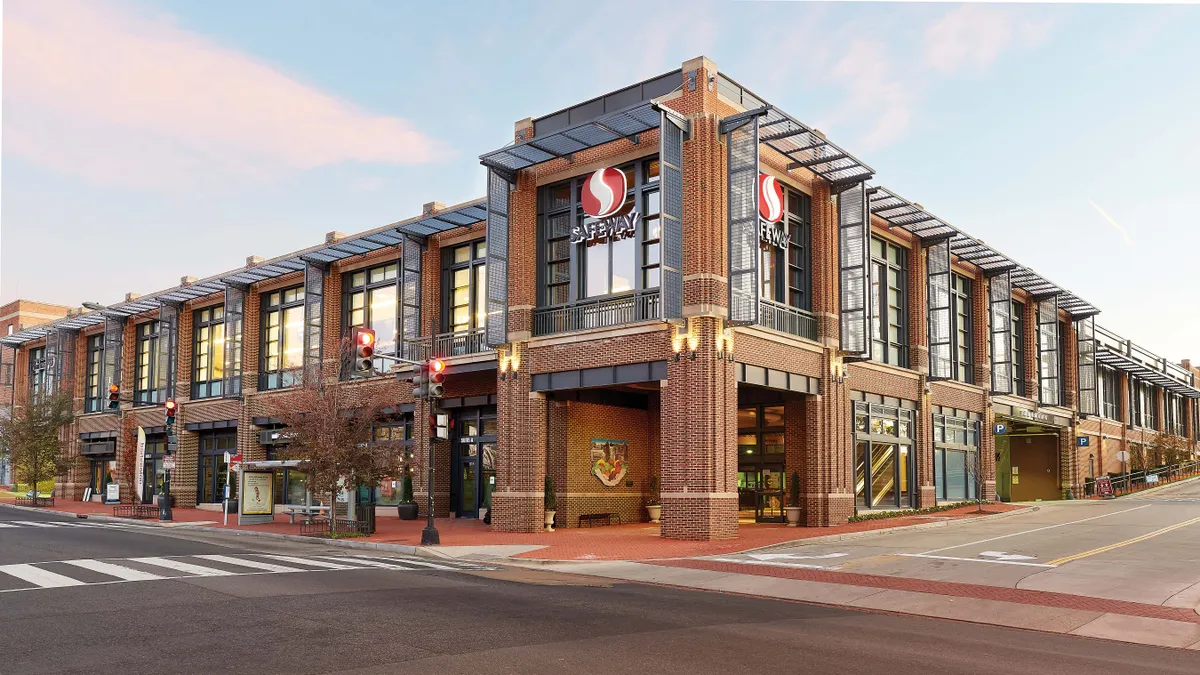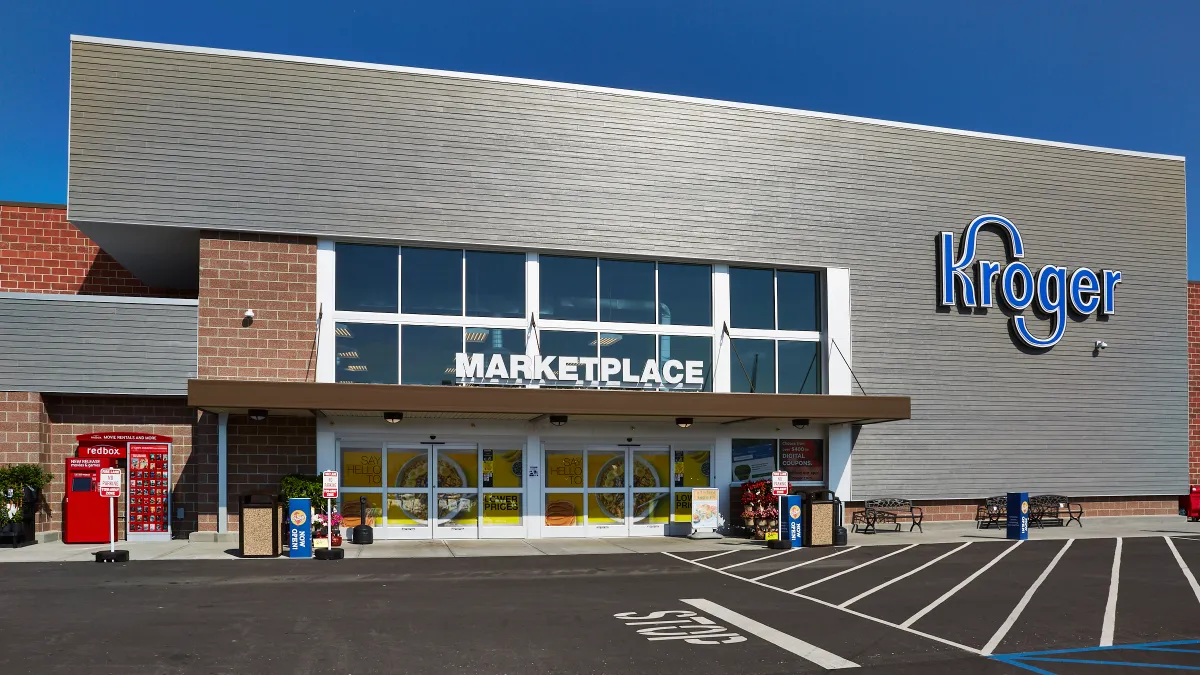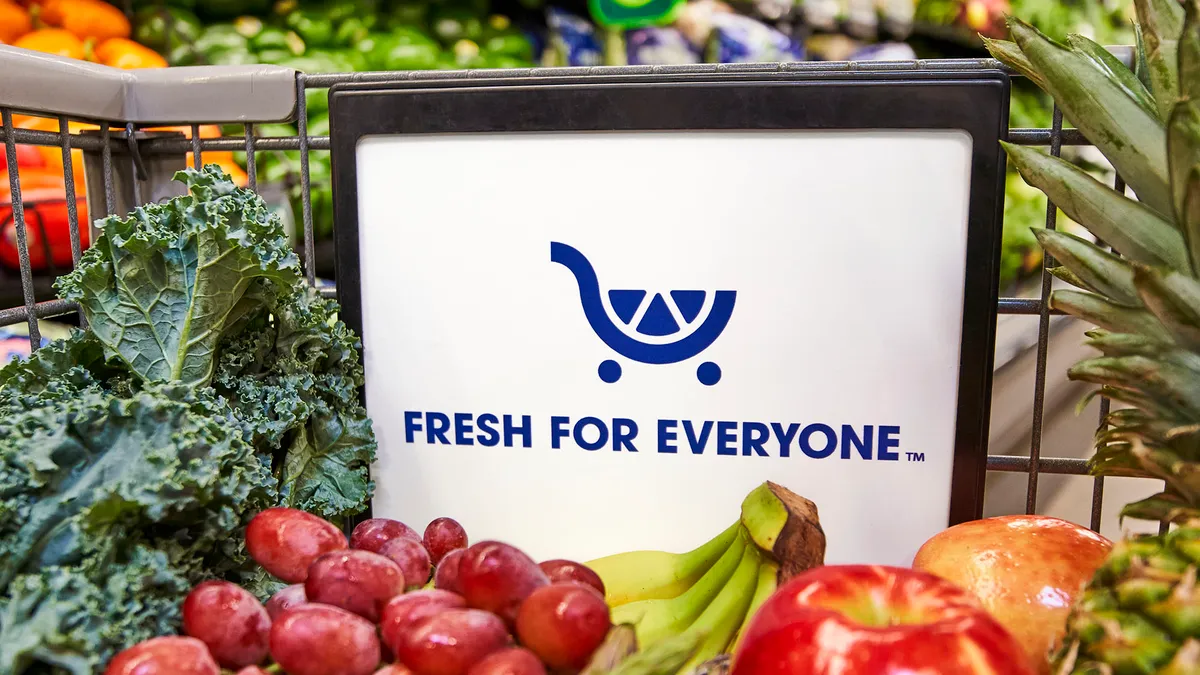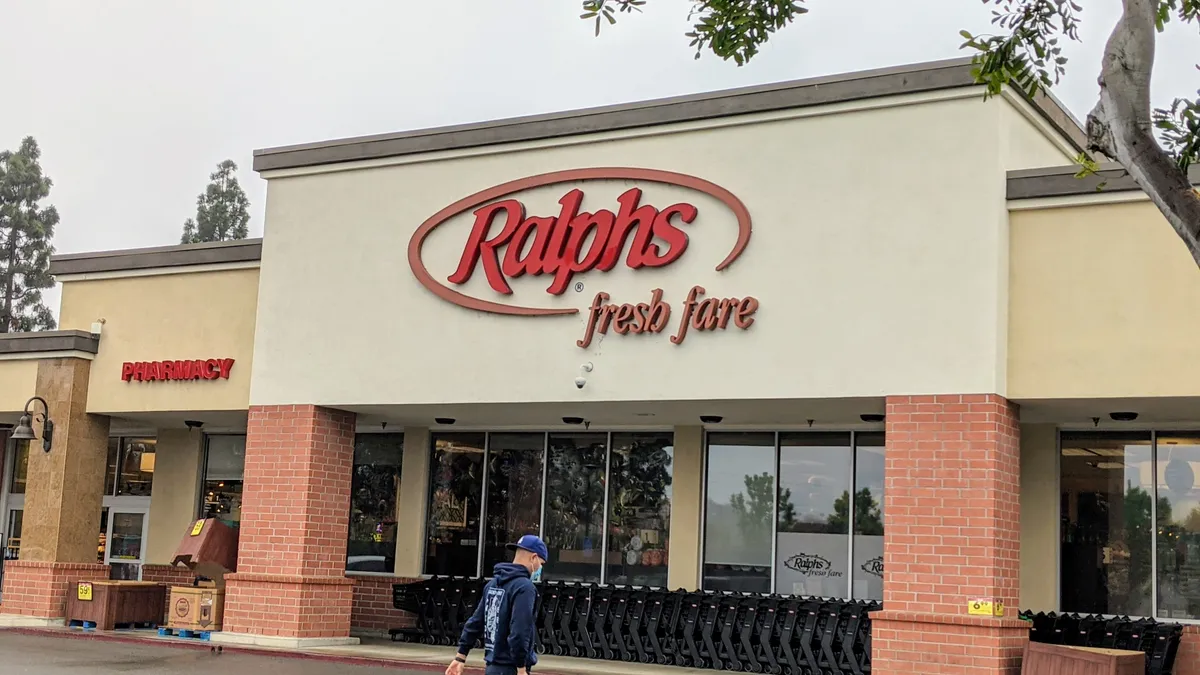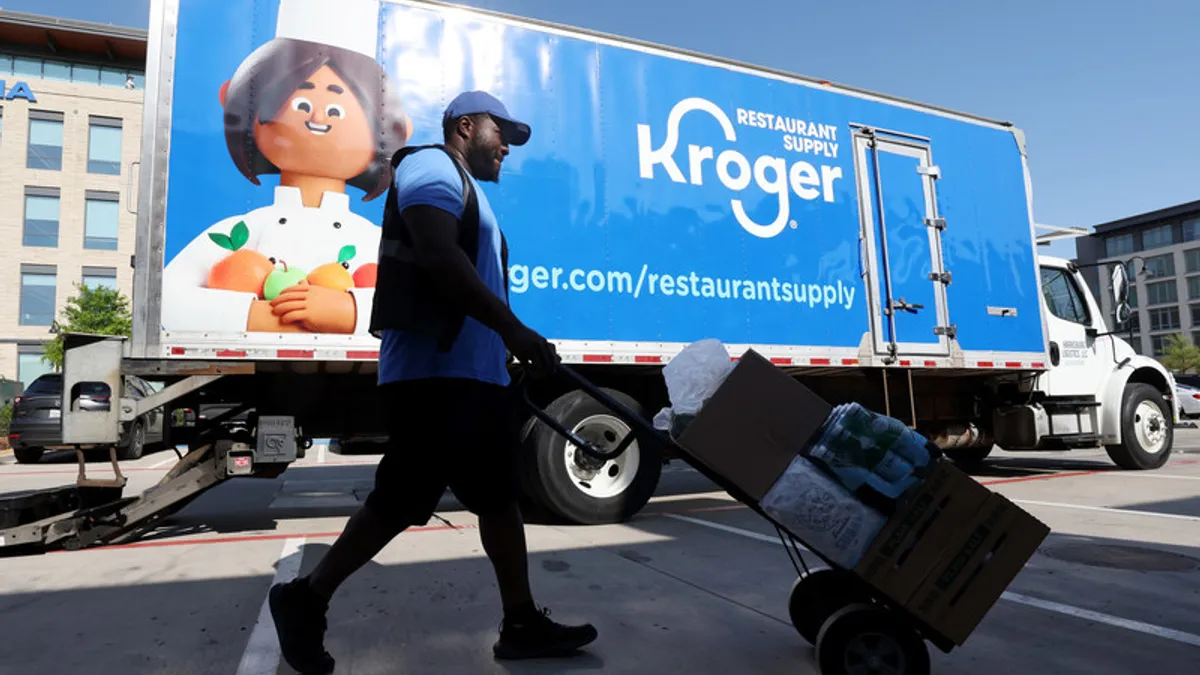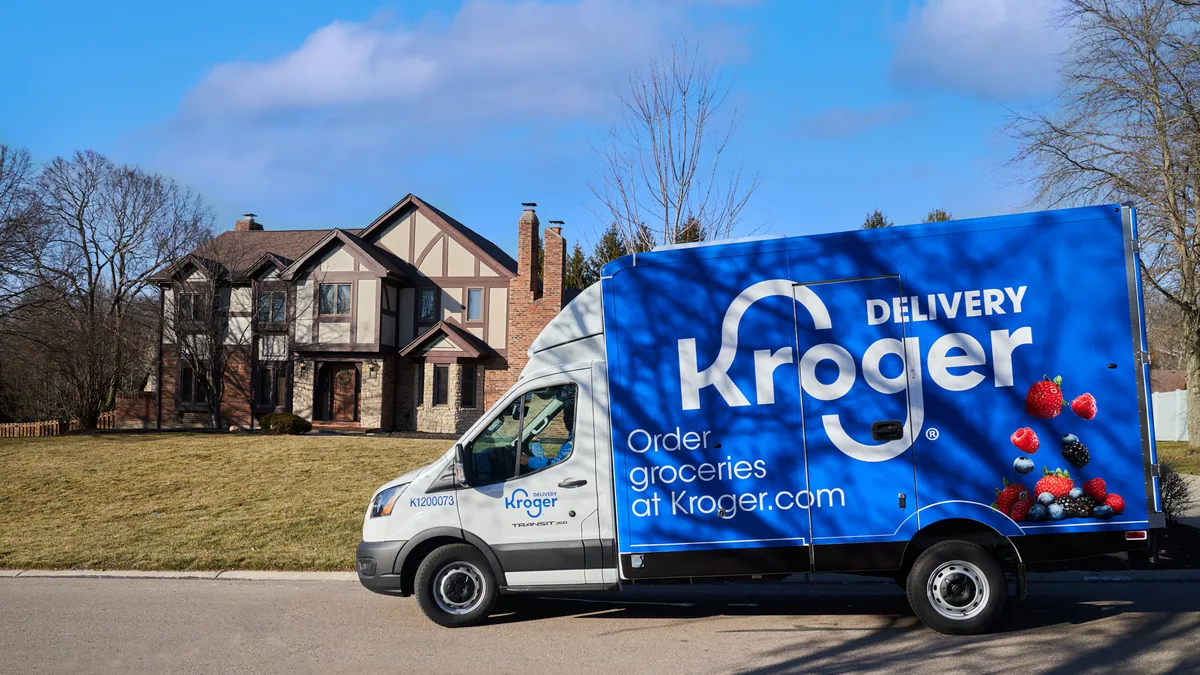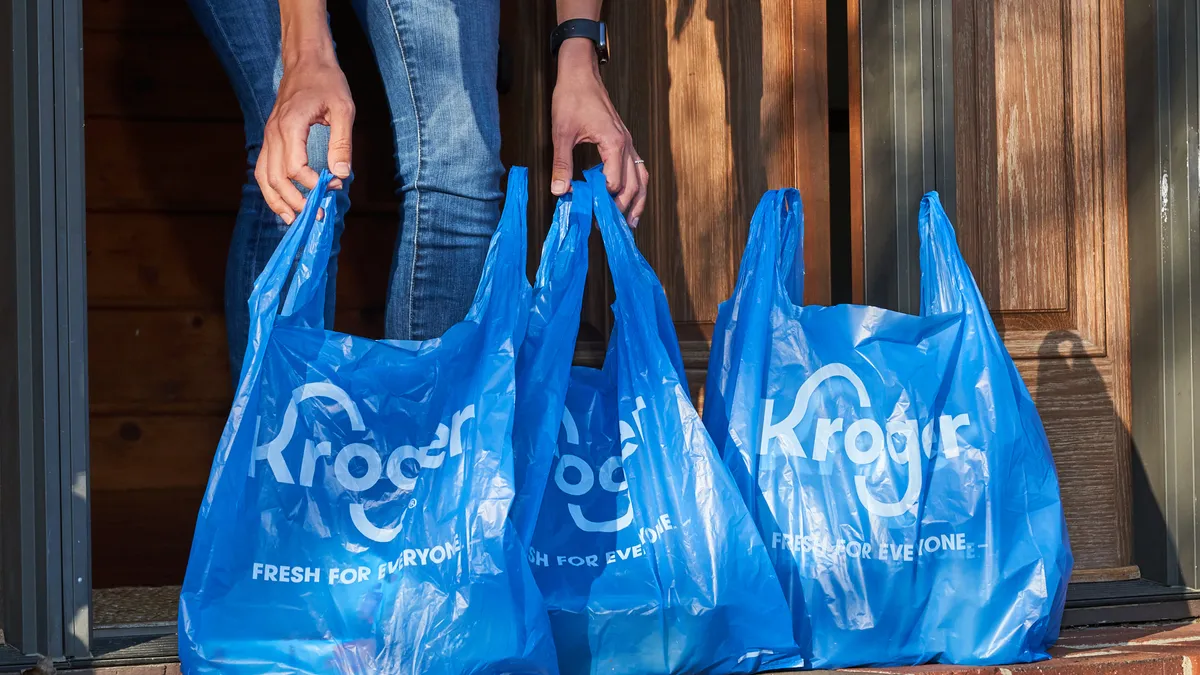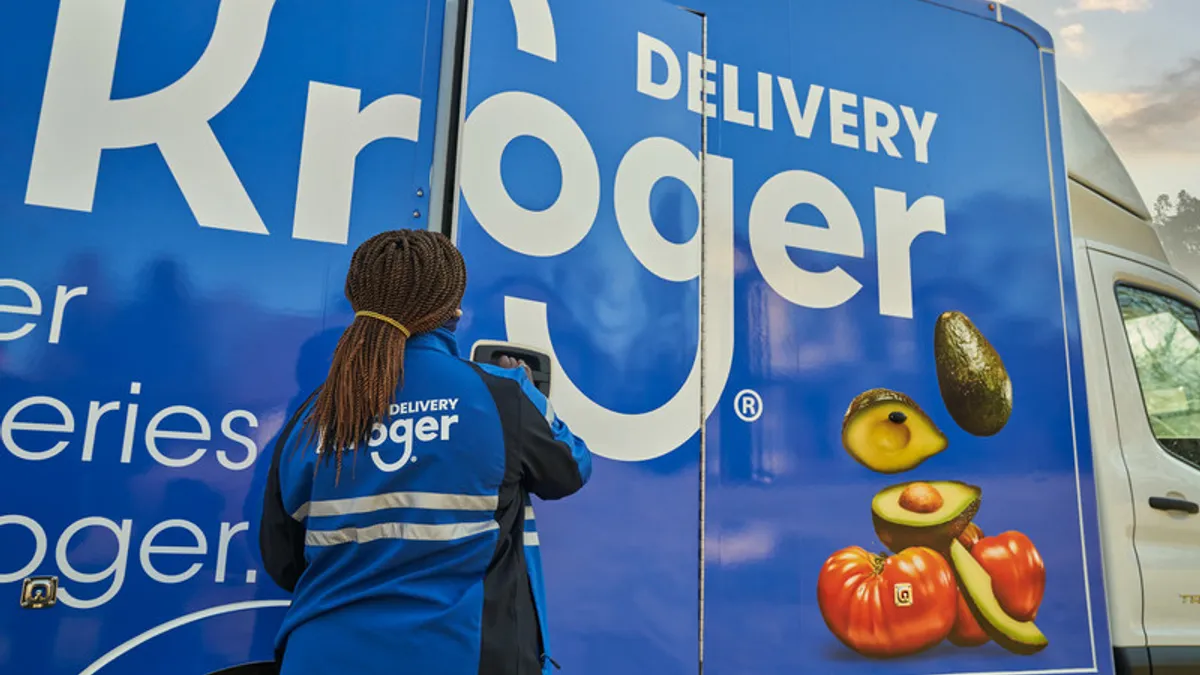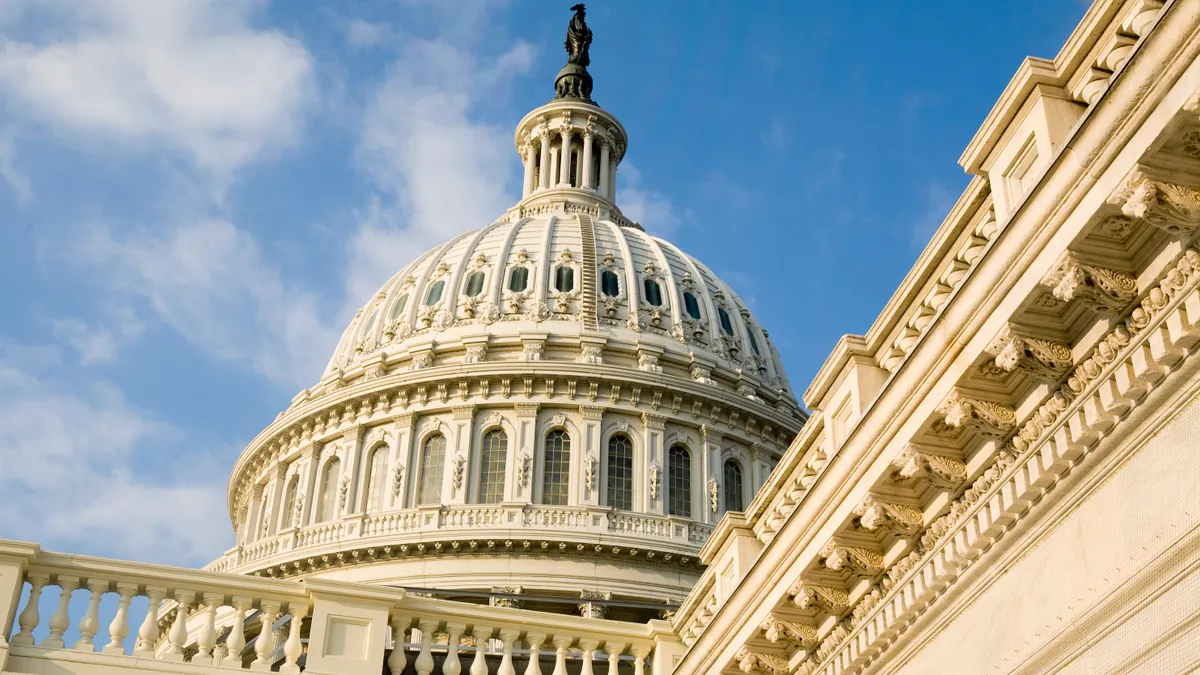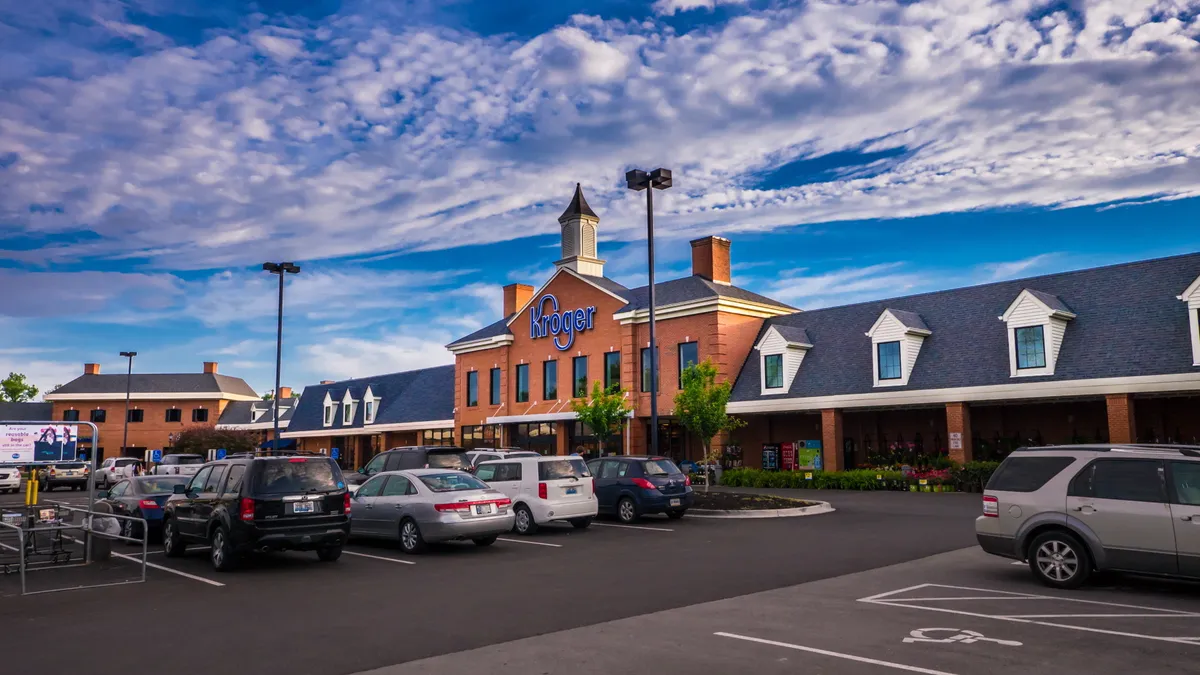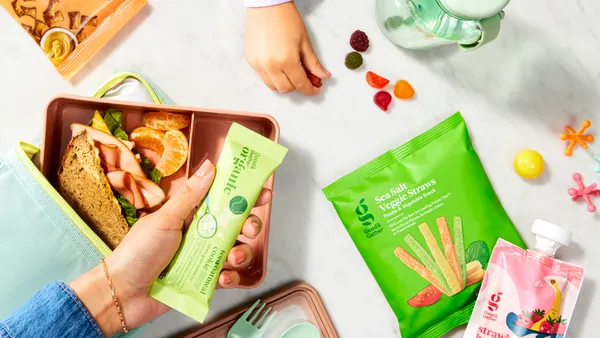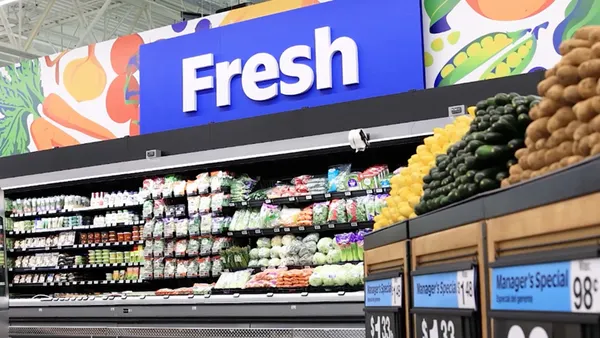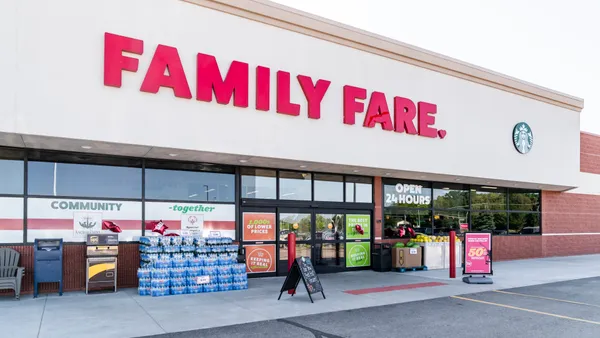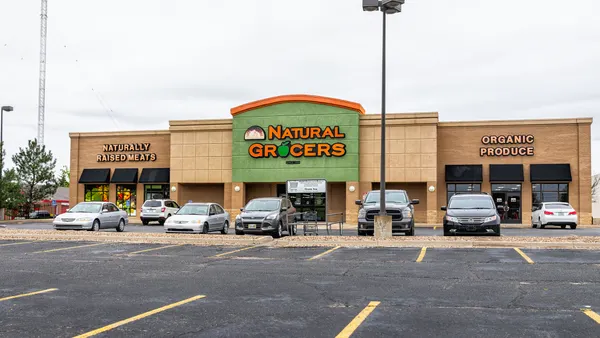Before it can complete its $24.6 billion deal to acquire Albertsons, Kroger will have to successfully navigate an intensive review process by regulators that are closely scrutinizing large mergers, experts say.
That review, which will likely be handled by the Federal Trade Commission (FTC), will look at whether the deal will actually result in favorable prices for consumers, as executives have pledged, and whether it will stymie competition in markets across the country. The agency will also look at whether the deal will achieve the proposed efficiencies Kroger has put forward.
Large-scale supermarket mergers like Albertsons’ acquisition of Safeway in 2015 and Ahold’s tie-up with Delhaize a year later have passed regulatory review — in both cases after the companies agreed to divest a significant number of stores in overlapping markets. But the Kroger-Albertsons merger is unprecedented for the industry, given the size of the two companies and the numerous markets where they both compete.
Ultimately, experts said, the case will likely hinge on how regulators define the competitive market and whether Kroger and Albertsons will be able to appease the FTC, which is more closely scrutinizing store divestitures, with its spin-off plan and other store sales.
“The Biden administration, and particularly the FTC under Biden, is very aggressive, very interested in appearing to satisfy consumers' concerns,” said Jim Burns, an antitrust lawyer with Williams Mullen, a firm based in Richmond, Virginia.

Defining the competition
Kroger and Albertsons are the first- and second-largest supermarket chains in the U.S. If the FTC considers that competitive field alone, then the merger will likely get challenged because it would effectively mean those two companies have cornered the market, said Daniel Rubinfeld, a law professor at New York University and a former deputy assistant attorney general for antitrust with the Department of Justice.
But supermarkets aren’t the only types of stores that sell groceries now, he noted. Walmart is the leading grocer in the U.S., holding nearly 21% share of sales, according to Numerator, while club retailer Costco is in third place with 7% share. Amazon is the leading online grocer, while discount players like Aldi, Dollar General and Grocery Outlet have gathered considerable strength in recent years.
“If this were 20 years ago when I was still working in the government, I would expect the FTC would try to block this deal,” Rubinfeld said.
In a recent note to clients, Morgan Stanley equity analyst Simeon Gutman noted that an expanded consideration of the food retail market will be key — particularly in regards to Walmart, which has a higher market share than Kroger and Albertsons combined, according to Numerator data.
“The inclusion of Walmart as a competitor could be a key swing factor,” Gutman wrote, according to a Bloomberg report.
Kroger and Albertsons combined account for 15.6% grocery market share, which lags Walmart
One relevant case from recent history is Whole Foods Market’s merger with fellow specialty grocer Wild Oats, which was proposed in 2007. The FTC initially ruled that the deal would violate federal antitrust laws by eliminating a substantial portion of the competition among natural and organic grocers.
That amounted to a narrow definition of the competitive field, Burns said. The FTC eventually gave the deal its blessing in 2009 after Whole Foods agreed to sell 32 stores along with related assets.
“Ultimately, the resolution was that organic foods is not its own market and any place you can buy food counts,” Burns said.
Burns believes that broad lens will be applied to the deal between Kroger and Albertsons: “I think the better and the ultimate result here is going to include Walmart and those other stores in the same market as these guys.”
Deeming Walmart and Amazon as competitors, however, likely won’t be the deciding factor for regulators in approving the Kroger-Albertsons merger, said Christine Bartholomew, a law professor and expert on corporate monopolies at the University at Buffalo School of Law.
“Regulators should not approve the merger simply because two competitors want to compete more effectively with the prevailing dominant big box or online retailer,” she wrote in emailed comments. “Nor is inflation enough to justify losing one of the top three market players. If regulators treat these justifications as reason enough to approve the merger, the long-term ramifications are significant.”
Closer scrutiny of divestitures
Kroger and Albertsons have hundreds of stores that sit within close proximity to one another. According to Credintell, a consulting firm that measures the financial health of retailers, as of mid June 48% of Albertsons’ stores were located within three miles of a Kroger location. Markets with the most significant overlaps include the Phoenix, Dallas-Fort Worth, Chicago and Seattle areas along with numerous markets in Southern California.
This means the companies will likely have to offload a sizable number of locations to appease regulators. Realizing this, Kroger and Albertsons said last week they’re willing to divest between 100 and 375 locations by spinning them off into a separate company called SpinCo that will be controlled by Albertsons shareholders.
“Any store that we need to divest we would intend to fully market them, and we will look at SpinCo as one option within that plan,” Kroger CFO Gary Millerchip said in a call with analysts last week.
This preemptive move could provide the companies with a strong opening hand in negotiations with the FTC by offering an upfront solution to store divestitures, Reuters and Bloomberg both reported. The move would also give the grocers a way to quickly offload stores if they’re not able to find buyers — a concern given that Albertsons’ stores are unionized, Reuters noted, citing sources familiar with the proposal.
But that initial proposal may be a lowball offer.
“We believe that number can easily go higher,” Creditntell wrote in its analysis of the merger plan.
Rubinfeld said that preemptive divestiture offers have become increasingly popular among companies seeking to merge. But he noted that regulators will be considering the health of the spun-off company and the likelihood that any store buyers will be able to effectively compete. He pointed to Kroger’s argument that it needs to scale up in order to improve its business.
“If that's really where they're gaining efficiencies, my question would be, how is it that this newly created firm is going to be able to operate? Because their scale does make a difference in this business,” he said.
FTC Chair Lina Khan has voiced skepticism about the benefits large mergers hold for consumers. She also criticized the agency’s remedy in Albertsons’ acquisition of Safeway, which involved selling close to 150 stores to the small Northwest grocery chain Haggen, which at the time had just 18 stores. Haggen went bankrupt in a matter of months and sold most of the stores back to Albertsons.
“Even a casual observer could have predicted that Haggen would have great difficulty expanding its storefronts nearly ten-fold in a very short period of time,” Khan wrote in a Harvard Law & Policy Review article published in 2017.
The outcome in that case is one reason why the FTC now applies greater scrutiny to divestiture proposals, Burns said.
“It’s a good example of why the regulators have started to say, ‘we're not going to be satisfied with a divestiture remedy if it isn't to someone that has the wherewithal to really replace competition,’” he noted.
The FTC declined to comment.
Even if the FTC decides to sue in order to block the merger, it could still go through if the presiding judge sides with the companies. That’s what happened last month when a federal judge sided with UnitedHealthcare in its push to acquire Change Healthcare after the Department of Justice filed suit.
“The judge specifically analyzed whether the divestiture that was proposed by the parties there would be sufficient to maintain competition, and decided that it would — and that was in large measure why the government lost,” Burns said.
The merger agreement between Kroger and Albertsons allows Kroger to walk away from the deal and pay a $600 million breakup fee if the number of store divestitures exceeds 650. That indicates a red line for the deal. However, Creditntell noted in its report that Albertsons’ five largest shareholders, including Cerberus Capital Management, are highly motivated to exit their investment in the company, whose stock has underperformed since it went public in 2020.
Jose Tamez, managing general partner with executive search firm Austin-Michael, who has worked with both grocers, said he, too, believes the companies are eager to complete the merger.
“I think both Kroger and Cerberus are compelled and willing to do whatever it takes to make sure this deal happens,” he said.
Catherine Douglas Moran contributed reporting.
Correction: An earlier version of this story misstated where the law firm Williams Mullen is based.



